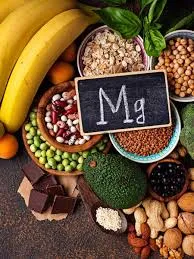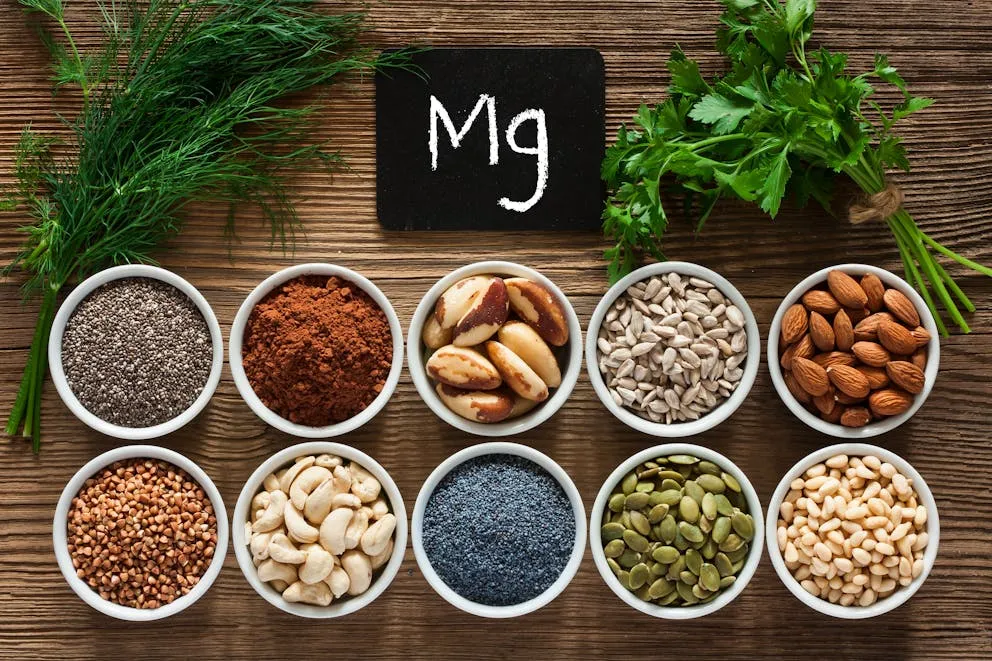
Feeling tired all the time? Irritable for no reason? Perhaps your body is trying to communicate with you. Or it might just be magnesium deficiency, which is more common than you think.
Think of your body as a high performance car. A car needs fuel, and looking after. So magnesium is that high octane quality gas. Without it, your engine — or in this case, body—starts to sputter and fail.
In this blog will discuss Magnesium deficiency, symptoms, food that is high in magnesium.
What is Magnesium Deficiency?
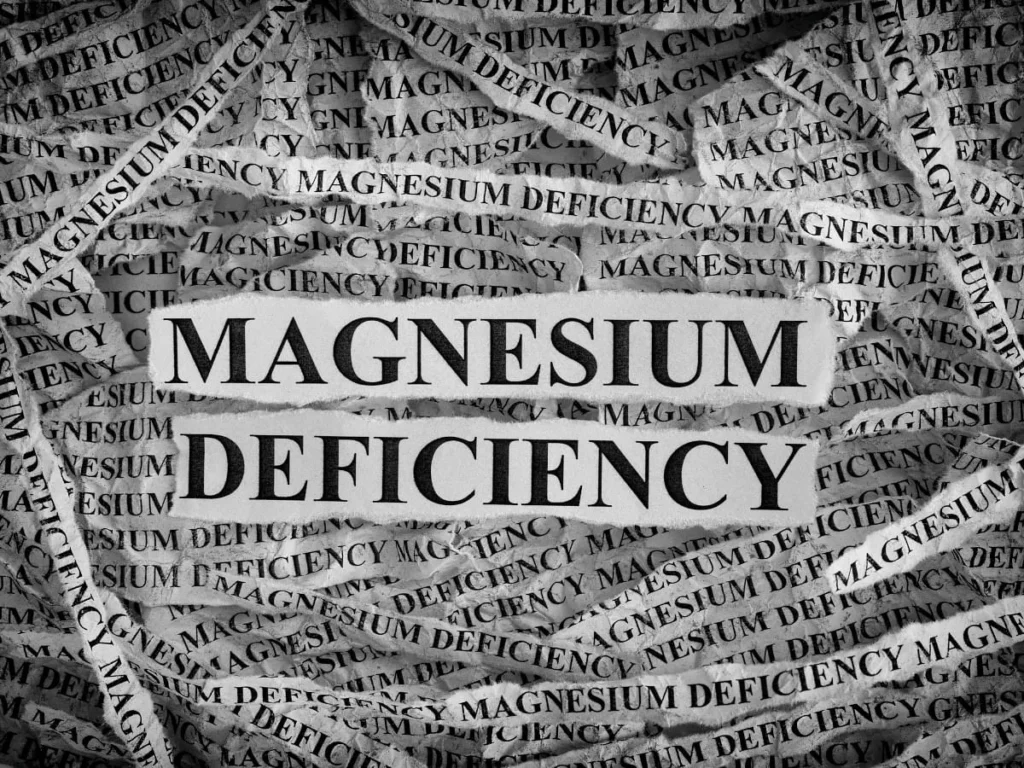
Magnesium is an essential mineral for our body that helps to boost energy, immunity, bone health, and maintain blood sugar.
Adequate amount of magnesium can help in boosting brain health.
Magnesium deficiency is a condition where your body does not get enough magnesium.
Although magnesium is a common mineral we can incorporate in our daily diet, still it is not taken in enough amounts.
Signs of Magnesium Deficiency
- Muscle weakness
- Low appetite
- High blood pressure
- Fatigue
- Poor sleep
- Nausea
- Irregular heartbeats
Benefits of Magnesium
From maintaining heart health and metabolic health, to managing mental health, reducing stress, and improving sleep quality, magnesium is an essential part of our diet.
Here is the three benefits of magnesium
- Magnesium and heart health
Research proves that adequate amounts of magnesium intake can reduce the chances of heart disease. It helps your heart beat regularly and control blood pressure.
Magnesium is also helpful in lowering the cardiovascular health such as;
- Heart stroke
- High blood pressure
- Heart disease
- Healthy Bones
Magnesium is a critical component for our body to keep our bones strong. Magnesium works well with Vit D and magnesium for better absorption.
Not having enough magnesium can lead you to weak bones and increasing bone fracture risk.
- Better Sleep
Magnesium promotes better sleep. It does this by controlling the brain cells that are linked to sleep.
It helps relax the muscles and calm the nervous system and also helps to reduce stress hormones.
- Digestive health
Magnesium is a key for your healthy digestion. It supports regular bowel movement. Magnesium also helps in maintaining a proper gut microbiome and reduces inflammation in the intestines.
Having the correct levels of magnesium will ensure that you promote overall good digestion and comfort.
Foods high in magnesium
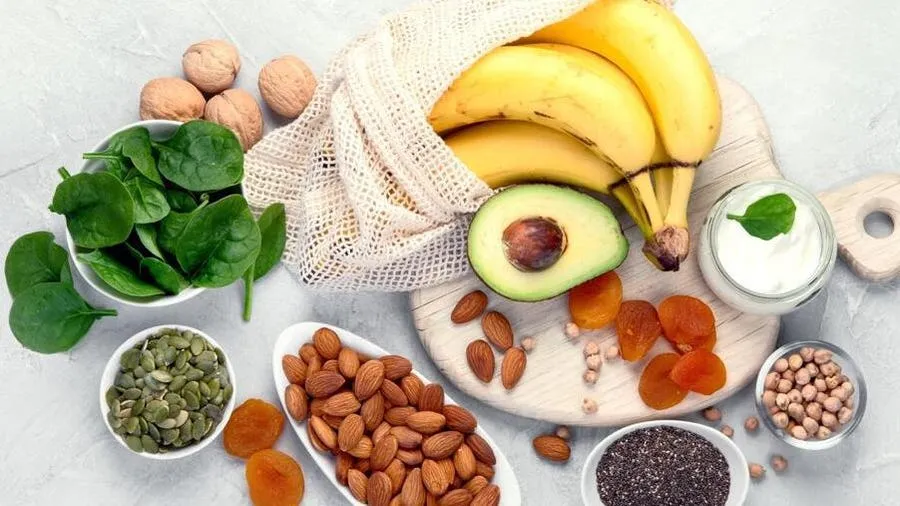
If you have magnesium deficiency and looking for good sources, here is the list.
- Kidney Beans (Rajma)
Kidney beans are widely used legumes in the diet. A cup of cooked kidney beans packed with around 120 mg of magnesium.
- Whole grains
Wheat, brown rice, and quinoa have high amounts of magnesium.
- Pumpkin seeds
Pumpkin seeds contain approximately 165 mg of magnesium per cup. Making them as part of your diet can be beneficial for your health.
Chia seeds and sunflower seeds are also great sources of magnesium.
- Almonds
Although all nuts have a good amount of magnesium, 1 oz of almonds contains around 80 mg of magnesium.
Almonds are best among the keto-friendly magnesium rich foods.
- Spinach
½ cup of cooked spinach contains approximately 78 mg of magnesium. Spinach is a superfood that contains calcium,iron, zinc and lots of vit A and K.
- Avocado
On average, one medium size avocado contains 50 mg of magnesium. It is recommendable to include avocado in your daily diet.
- Dark leafy greens
Dark leafy green, considered a superfood with magnesium, is one of the superpowers.
Depending on the type, ½ cup of cooked leafy greens contains approximately 30 – 80 mg of magnesium.
- Tofu
Tofu is also a magnesium rich food. 1 cup of tofu contains 75 mg of magnesium.
- Banana
Bananas are one of the most popular and nutritious fruit in the world. They are also a good source of magnesium, 1 banana contains around 35 mg of magnesium.
- Dark Chocolate
Dark chocolate is healthy as well as delicious. It is rich in magnesium containing 65 mg in 1 oz of dark chocolate. Dark chocolate is also good for heart health and cholesterol.
To gain maximum benefit, choose the chocolate with 70-85% of cocoa.
Drinks with high magnesium
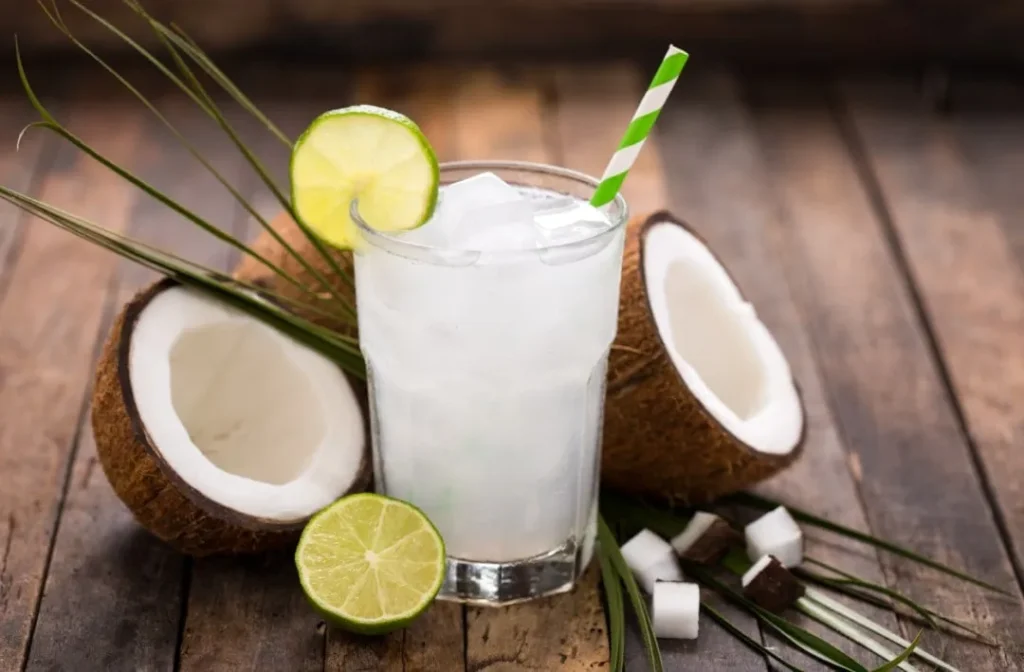
Now you probably know which food has high magnesium. But do you know some drinks also have magnesium? Some of them are below;
- Coconut Water
- Almond Milk
- Orange Juice
- Sparkling Mineral Water
Drinking these types of beverages can help you feel calm and nourished while also getting more magnesium into your system. Knowing about these drinks can be really helpful if you’re trying to eat healthy.
What causes magnesium deficiency?
If magnesium is part of our diet, then why are many people deficient in that essential mineral? There are some reason for lack of magnesium;
- Poor soil quality: Although you are consuming enough magnesium daily and still you have magnesium deficiency, it’s because of the soil quality.
If the soil is lacking nutrients, plants cannot absorb minerals like magnesium and thus the plant itself becomes nutrient-deficient.
Unfortunately, the nutrient content of our soil and thus the food we eat has been declining for decades.
- Age: Older people tend to have lower magnesium levels. Magnesium absorption from the gut decreases with age.
- Type 2 diabetes: People with Type-2 diabetes are at higher risk of magnesium deficiency. People with insulin sensitivity also lose excess magnesium.
- Chronic Stress: Magnesium is one of the most critical minerals for help coping with stress. When you are under mental or physical stress, your cells will pull magnesium out of the blood.
- Kidney problem
- Digestive problem
- Poor diet
Conclusion
Magnesium is an essential mineral and helpful for health. If you want to maintain or raise the level of magnesium you need to include all the magnesium rich food or supplements as needed in your diet.
Leafy green vegetables, pumpkin seeds, avocado, and almonds are great sources of magnesium. And magnesium has many benefits from supporting heart health, mental health to strong bones.
FAQ
- Can magnesium deficiency be serious?
Severe magnesium deficiency can lead to more serious complications, such as seizures, heart disease.
- How much magnesium do I need daily?
The recommended daily intake of magnesium varies based on age and gender from 320 mg to 410 mg. It’s always advisable to consult a doctor as per your requirement.
- What food is high in magnesium?
Pumpkin seeds, almonds, whole grains, dark chocolate, and dark leafy greens are the highest amount of magnesium.
4. What fruit has the most magnesium?
Banana has 32 mg and Avocado has 58 mg magnesium content which is good for a person’s daily needs.
5. What are the signs of magnesium deficiency?
Muscle weakness, low appetite, high blood pressure, fatigue, memory loss, and poor sleep.
6. What vegetables have the most magnesium?
Spinach, kale, mustard green, and Swiss chard are great sources of magnesium.
7. What are the benefits of magnesium?
Magnesium helps in boosting energy, regulates blood pressure, and reduces the risk of heart disease. It also improves mental health and promotes better sleep.
8. How can I avoid magnesium deficiency?
Eating a balanced diet which includes magnesium rich foods and taking supplements if needed.
9. How to diagnose magnesium deficiency?
Doctors will recommend doing one of these tests: blood test or urine test. And then based on symptoms or history Clinical evaluation will be done.
